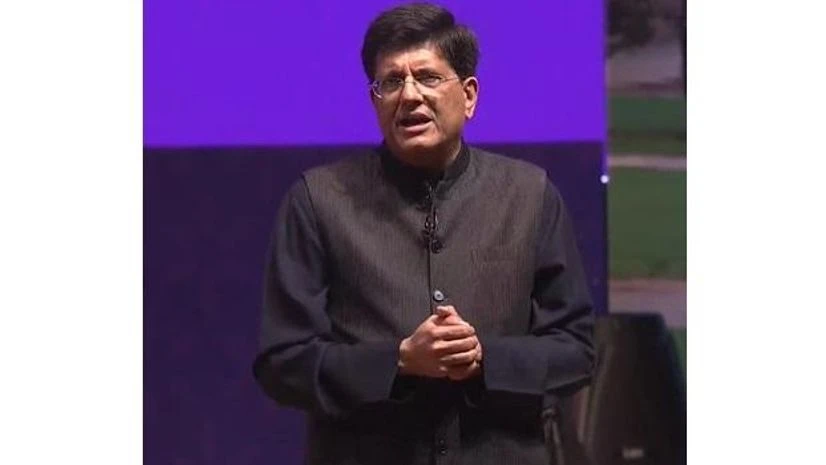The government's initiative to increase the use of green energy and some policy interventions would help the Indian industry tide over the impact of the EU's decision to impose a carbon tax on sectors like steel and aluminium, Commerce Minister Piyush Goyal said on Wednesday.
He said that India is in dialogue with the European Union and with other countries to see how these new initiatives like CABM (carbon border adjustment mechanism) will impact Indian industry and manufacturers.
The minister, however, assured the industry that the government will protect its interest.
"Any amount of laws any country may bring out, we will ensure that it doesn't hurt any of your businesses. That you can rest assured...I personally look at all these not as an impediment but I am continuously examining to see how we can convert this so-called problem CBAM into an advantage for the Indian industry," he said here at an event of auto component makers.
The EU is introducing the CBAM from October 1 this year. CBAM will translate into a 20-35 per cent tax on select imports into the EU starting January 1, 2026.
The CBAM or carbon tax (a kind of import duty) will come into effect from January 1, 2026, but from October 1 this year, domestic companies from seven carbon-intensive sectors, including steel, cement, fertiliser, aluminium and hydrocarbon products, will have to share data with regard to carbon emissions with the EU.
More From This Section
In 2022, India's 27 per cent exports of iron, steel, and aluminium products of value USD 8.2 billion went to the EU.
The commerce and industry minister said that the dialogue with the EU is progressing well.
The EU, he said, is "also working on it, not as a non-technical barrier to trade, (but) as their own effort to try and bring sustainability at the core of the world agenda".
"From October, we have to start reporting but taxes will not be payable untill 2026. During (that) period we are already discussing a free trade agreement (with the EU)," he said.
India will also find a smarter way to ensure that "we are able" to decarbonise the domestic economy as the country is committed to reducing its carbon intensity by about 45 per cent from 2005 levels by 2030.
"We are well on track to achieve that," Goyal said adding India is increasing wind energy, solar is becoming much more affordable, green hydrogen and green ammonia are becoming the best fuels of the future..
"So India is going down the green path very rapidly. We are looking at green steel in the future," he said.
He suggested auto component makers look for more auto parks where a mix of solar, wind, and green hydrogen can be used to decarbonise the production ecosystem.
"We are also working with steel industry in a big way. All of this put together and possibly some policy interventions to accommodate the demands of the world today, will give us a competitive edge over other countries," Goyal said.
(Only the headline and picture of this report may have been reworked by the Business Standard staff; the rest of the content is auto-generated from a syndicated feed.)

)
